|
|
Last Modified on Aug 15, 2022
Title insurance covers the condition of your title or ownership rights to a piece of real estate. While it can’t guarantee that title defects won’t exist or won’t occur, a title insurance policy insures you against losses caused by conditions not disclosed in your policy that may affect your title. Hidden risks covered by owner’s title insurance include:
- Forged deeds and other documents
- Clerical error
- Unidentified or missing heirs
- Fraud
- Unpaid child support liens
- Unpaid taxes
- Unrecorded easements
- Unsatisfied prior mortgages
At Thomas & Webber Law at the Lake, we have guided several clients through the legal aspects of buying and selling real estate and reviewed the common types of title insurance in this blog.
Fee Simple Title
Fee simple ownership means the land is owned outright, with no limitations or restrictions besides local zoning regulations. It only refers to real estate, which includes land and anything directly attached, such as buildings, roads, ponds, and machinery.
- Fee simple absolute: Fee simple and fee simple absolute are the same. Absolute ownership is when you own land completely, without any limitations.
- Fee simple defeasible: Fee simple defeasible requires very specific conditions for ownership. Moreover, if the conditions of ownership are violated, the property can be returned to the grantor or a third party. A fee simple defeasible can take three different forms:
- Fee simple subject to condition subsequent: When conditions of ownership are violated or not met, the grantor has the option of taking back the property.
- Fee simple determinable: The grantor automatically regains ownership of the property if conditions are violated or not met. They do not need to take any further action.
- Fee simple subject to executory limitation: The property is automatically transferred to a third party if the conditions are violated or not met.
Lender’s Policy
Residential mortgage lenders in North Carolina require borrowers to obtain a lender’s title insurance policy based on an attorney’s opinion that the loan is free of unacceptable liens and encumbrances. The one-time premium is based on the sale price or loan amount. Lender’s coverage is based on the loan amount, while owner’s coverage is based on the purchase price.
Owner’s Policy (optional in NC)
An owner’s title insurance policy covers property owners, but they are not required in North Carolina. They describe the property and outline its “exceptions, exclusions, and conditions” (if any). Exclusions and exceptions may include items disclosed before you agreed to buy the property. In other words, the limitations you accepted when you bought the house.
Questions About Title Insurance? Get Them Answered by a Real Estate Lawyer
A North Carolina property owner can find themselves unable to obtain a clear title to their property due to errors made in the past. The cost of correcting these mistakes could be extremely high without title insurance.
At Thomas & Webber Law at the Lake, we assist clients in obtaining a title insurance policy and also take the time to ensure that you understand what the policy covers and what issues will not be covered. If you have questions or need assistance with a title insurance matter, contact us to schedule a consultation.





